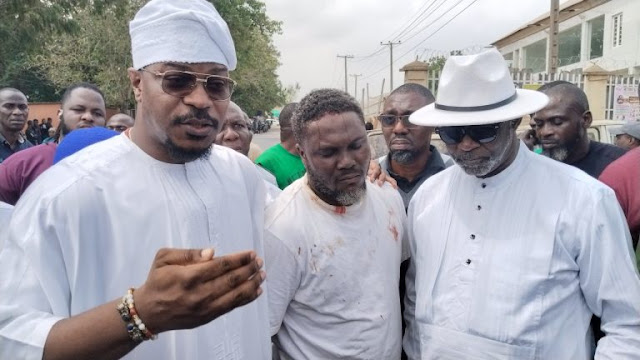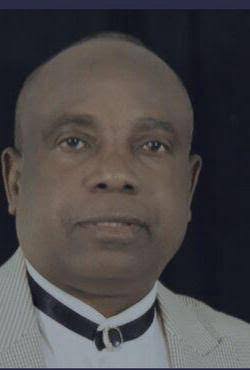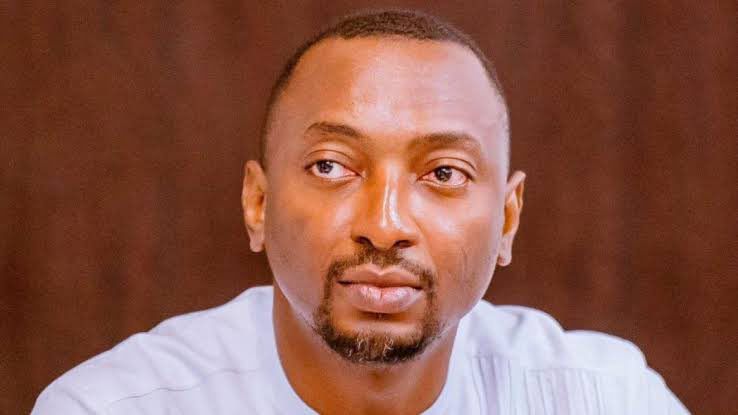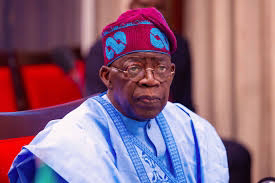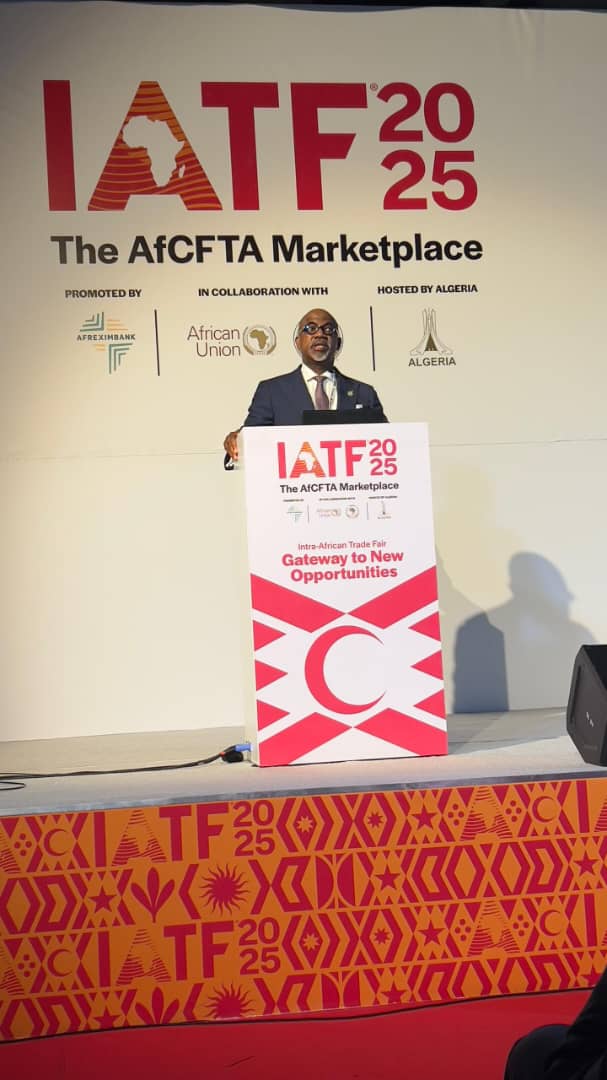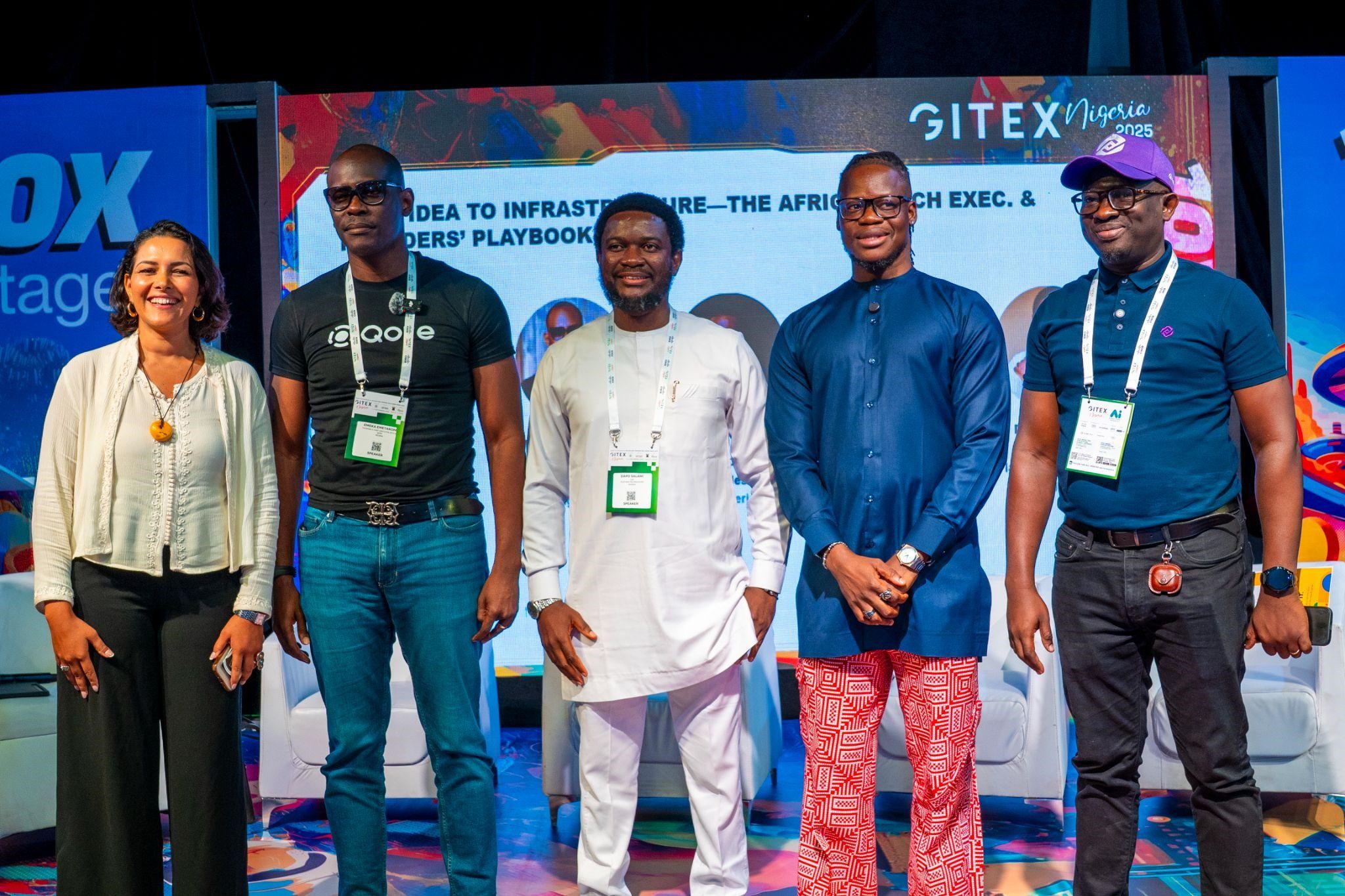In the vibrant and often volatile political landscape of Lagos State, Nigeria, where the All Progressives Congress (APC) has maintained an iron grip on power for over two decades, a fresh skirmish has erupted between the ruling party and the upstart African Democratic Congress (ADC). On Sunday, September 7, 2025, the Lagos chapter of the APC unleashed a scathing rebuke against the ADC, branding their recent accusations as nothing more than “wild and fabricated” propaganda orchestrated by a “politically irrelevant party clutching at straws to stay in the news.” At the center of this verbal broadside is Gbadebo Rhodes-Vivour, a prominent ADC chieftain and perennial electoral contender, whom the APC derisively labeled a “serial contestant and serial loser” who peddles his narrative through “Twitter hashtags and noisy press statements” rather than substantive achievements. This exchange, sparked by an alleged attack on ADC members during a local meeting, underscores the deepening fissures in Lagos politics as opposition parties like the ADC scramble for relevance ahead of future elections.
The controversy ignited on Saturday, September 6, 2025, in the bustling Alimosho Local Government Area—one of Lagos’s most populous and politically charged districts. According to claims from the ADC, their members were viciously assaulted by APC thugs while attending a routine party meeting at a community hall. Eyewitness accounts circulated by ADC supporters painted a picture of chaos: masked assailants allegedly stormed the venue, wielding sticks and machetes, shouting pro-APC slogans as they disrupted proceedings and targeted participants. The ADC swiftly issued a press release condemning the incident as a “barbaric act of political intimidation,” vowing to seek justice through legal channels and public mobilization. They further escalated the rhetoric by accusing the APC of desecrating a nearby church used for the meeting, framing it as a despicable intrusion of partisan violence into sacred spaces. In a bold and provocative twist, the ADC referenced a purported Canadian court ruling that allegedly declared the APC a “terrorist organization,” drawing parallels between the ruling party’s tactics and international extremism.
Seye Oladejo, the outspoken Publicity Secretary of the Lagos APC, wasted no time in countering these narratives. In a detailed statement released the following day, Oladejo dismantled the ADC’s claims piece by piece, portraying them as desperate fabrications from a party that has yet to secure even a single councillorship seat in Lagos. “The ADC’s wild and fabricated stories are nothing but a cheap propaganda stunt by a politically irrelevant party desperate to remain in the news,” Oladejo declared. He specifically zeroed in on Rhodes-Vivour, the ADC’s most visible face in Lagos, accusing him of being a “serial loser” who has failed to win elections despite multiple attempts. Rhodes-Vivour’s reliance on social media amplification, Oladejo argued, is a poor substitute for genuine grassroots engagement, serving only to mask the ADC’s electoral impotence.
This isn’t the first time Rhodes-Vivour has clashed with the APC establishment. A scion of one of Lagos’s influential creole families, with roots tracing back to Sierra Leonean descendants who played pivotal roles in Nigeria’s independence movement, Rhodes-Vivour has positioned himself as a progressive voice challenging the APC’s dominance. Born into privilege—his grandfather was a renowned architect and senator—Rhodes-Vivour pursued higher education abroad, earning a degree in architecture from the University of Lagos before venturing into politics. His foray began in earnest during the 2019 general elections, where he contested for a seat in the House of Representatives under the Labour Party (LP) banner but fell short. Undeterred, he pivoted to the 2023 Lagos gubernatorial race, again with the LP, mounting a spirited campaign that highlighted issues like flooding, housing shortages, and ethnic inclusivity in a state often criticized for marginalizing non-indigenous residents.
That 2023 campaign was nothing short of electric. Rhodes-Vivour, with his youthful energy and sharp critiques of Governor Babajide Sanwo-Olu’s administration, garnered significant support from urban youth, diaspora communities, and those disillusioned with the APC’s long reign. His mantra of “Lagos for all” resonated in a megacity where Igbos, Yorubas, and other ethnic groups coexist amid tensions over land rights and economic opportunities. Polls suggested a tight race, but when results were announced, Sanwo-Olu emerged victorious with 1,170,027 votes to Rhodes-Vivour’s 347,354—a margin that, while decisive, fueled post-election disputes. Rhodes-Vivour challenged the outcome in the Lagos State Governorship Election Petition Tribunal, alleging irregularities, voter suppression, and undue influence by state security forces. The tribunal dismissed his petition in September 2023, a ruling upheld by the Court of Appeal in October and the Supreme Court in January 2024. For the APC, these legal battles were a vindication of their electoral machinery; for Rhodes-Vivour’s supporters, they were proof of a rigged system.
Post-2023, Rhodes-Vivour’s political trajectory took another turn. Disillusioned with the LP’s internal wrangling, he defected to the ADC in early 2025, a move that APC critics like Oladejo have seized upon as evidence of his opportunism. The ADC, founded in 2005 as a platform for democratic renewal, has struggled for national relevance, often overshadowed by giants like the APC, People’s Democratic Party (PDP), and LP. In Lagos, its footprint is negligible, with no elected officials to boast of. Yet, Rhodes-Vivour’s entry injected fresh vitality, positioning the party as a haven for anti-establishment voices. His recent activities, including town halls in areas like Alimosho and Ikeja, have focused on mobilizing against perceived APC overreach, from infrastructure deficits to youth unemployment. The alleged attack, if true, would fit a pattern of opposition suppression that Rhodes-Vivour has long decried.
Oladejo’s statement delved deeper into the specifics of the ADC’s accusations, reserving particular scorn for the church desecration claim. “It is shameful and blasphemous for the ADC to drag the sacred name of the church into their political mudslinging,” he wrote. The APC, Oladejo emphasized, has governed Lagos since 1999 without resorting to such sacrilege, crediting the party’s respect for religious institutions as a cornerstone of its popularity. Lagos, with its syncretic blend of Christianity, Islam, and traditional faiths, is a tinderbox for religious sensitivities; any whiff of politicization could alienate voters. The APC’s track record includes initiatives like the annual interfaith dialogues under former Governor Bola Tinubu (now President) and ongoing partnerships with religious bodies for social services. By contrast, Oladejo portrayed the ADC’s narrative as a cynical ploy to inflame communal tensions for electoral gain.
The Canadian court reference drew even sharper ridicule. The ADC’s allusion appears to stem from a fringe 2024 lawsuit in Ontario, where a Nigerian expatriate group petitioned a Canadian court to classify certain APC-aligned security outfits as terrorist entities due to alleged election violence in 2023. The case, widely dismissed by legal experts as lacking jurisdiction and evidence, was thrown out within weeks. Oladejo called it “a joke taken too far,” urging the ADC to focus on domestic realities rather than international fantasies. This jab highlights a broader APC strategy: portraying opposition critiques as detached from Nigerian contexts, thereby reinforcing the party’s nationalist credentials.
At its core, this feud is emblematic of Lagos politics’ high-stakes nature. As Africa’s largest economy and most populous city, Lagos generates over 30% of Nigeria’s GDP, making control of its levers— from the Lekki Free Trade Zone to the sprawling informal markets—a prize worth fighting for. The APC’s dominance, often attributed to Tinubu’s political wizardry, has delivered infrastructure marvels like the Lagos-Ibadan Expressway and the Blue Line Rail, but critics argue it masks cronyism, environmental degradation, and exclusionary policies. Opposition figures like Rhodes-Vivour tap into this discontent, advocating for equitable development in underserved areas like Alimosho, where rapid urbanization strains resources.
The Alimosho incident, whether fabricated or real, amplifies these tensions. Alimosho, home to over a million residents, is a microcosm of Lagos’s diversity: a mix of middle-class estates, sprawling slums, and industrial hubs. Political meetings here are common battlegrounds, with parties vying for loyalty among traders, artisans, and civil servants. If the ADC’s account holds, it could galvanize sympathy from human rights groups and the international community, pressuring the APC ahead of local polls. Conversely, the APC’s denial positions them as victims of smear campaigns, rallying their base against “enemies of progress.”
Rhodes-Vivour’s personal brand adds intrigue. Beyond politics, he’s an advocate for sustainable architecture, having designed eco-friendly projects in Lagos. His social media savvy—boasting over 500,000 Twitter followers—allows him to bypass traditional media, disseminating messages on governance failures and youth empowerment. APC detractors see this as innovative; Oladejo frames it as superficial noise from a “loser” unwilling to build a real movement. Rhodes-Vivour’s electoral losses, the APC argues, stem from his inability to connect beyond elite circles, a critique echoed in post-2023 analyses by political observers.
As the dust settles, the APC has challenged the ADC to produce concrete evidence: videos, witness statements, or medical reports from the alleged attack. “We will not be distracted by hallucinations from a party that can’t win a polling unit,” Oladejo concluded, reaffirming the APC’s commitment to governance. Initiatives like the ongoing Eko Atlantic City project and flood mitigation efforts in Alimosho are cited as proof of their focus. For the ADC, this rebuttal is a call to arms, with Rhodes-Vivour likely to leverage it for further mobilization.
This episode foreshadows intensified politicking as Nigeria approaches its 2027 general elections. With President Tinubu’s APC seeking to consolidate power nationally, Lagos remains the crown jewel. Opposition coalitions, potentially uniting figures like Rhodes-Vivour with PDP or LP remnants, could challenge the status quo. Yet, the APC’s machine—bolstered by incumbency advantages and voter loyalty—looms large. In a nation where politics often blurs into personal vendettas, this “serial loser” label may sting Rhodes-Vivour, but it also humanizes him among underdogs, potentially fueling his next bid.
The Roots of Rivalry: Tracing Lagos’ Political Dynasties
To understand the venom in Oladejo’s words, one must delve into the historical underpinnings of Lagos politics. The city-state’s evolution from a colonial port to a modern metropolis has been shaped by figures like Herbert Macaulay and Nnamdi Azikiwe, whose legacies Rhodes-Vivour invokes. The APC’s ascent traces to the Alliance for Democracy (AD) in 1999, but it was Tinubu’s consolidation—through infrastructure investments and party patronage—that entrenched their rule. Today, the APC controls the governorship, state assembly, and most local governments, with a war chest funded by Lagos’s commercial prowess.
Rhodes-Vivour’s family history adds layers. His great-grandfather, Ernest Ikoli, was a newspaper magnate and nationalist; his uncle, Wole Soyinka’s collaborator in activism. This pedigree contrasts with the APC’s grassroots origins, allowing critics to paint Rhodes-Vivour as an elitist outsider. Yet, his campaigns have emphasized inclusivity, addressing the “otherization” of non-Yoruba residents—a sensitive issue in a state where indigeneship debates fuel unrest.
The ADC’s role is pivotal. As a smaller party, it attracts defectors seeking alternatives to the PDP’s baggage or LP’s infighting. Founded amid the Third Republic’s democratic experiments, the ADC has sporadically allied with coalitions but lacks Lagos infrastructure. Rhodes-Vivour’s leadership could change that, especially if he courts Igbo and youth voters disillusioned by economic hardships.
Oladejo himself is a seasoned operative, having served as a media aide to past governors. His statements often blend defense with offense, a tactic honed in Lagos’s media-savvy arena. The church desecration claim, for instance, strikes at the APC’s moral high ground; Lagos’s megachurches, like Redeemed Christian Church of God, wield immense influence, and alienating them could cost votes.
The Canadian court angle, though dismissed, touches on diaspora politics. Nigerian communities abroad, particularly in Canada, have amplified 2023 election grievances, filing suits that, while symbolic, pressure the APC internationally. This global dimension complicates local feuds, as remittances and opinions from abroad shape narratives.
Broader Implications: Violence, Propaganda, and Democratic Health
Allegations of political violence are not new in Nigeria. The 2023 elections saw clashes in Lagos, with reports of voter intimidation in strongholds like Alimosho. Human Rights Watch documented over 50 incidents, many involving APC supporters. If the ADC’s claims are substantiated, it could invite scrutiny from the Independent National Electoral Commission (INEC) or even federal intervention, though the APC’s national dominance makes that unlikely.
Propaganda remains a staple. Social media, with platforms like Twitter (now X), amplifies unverified claims, as Oladejo notes. Rhodes-Vivour’s hashtag campaigns—#Lagos4All, #EndBadGovernance—have trended, but the APC counters with data-driven defenses, showcasing projects like the 1,000km road network built since 2015.
For democracy, this rivalry tests resilience. Lagos’s youth, facing 40% unemployment, demand accountability; Rhodes-Vivour’s appeal lies here, promising reforms. Yet, the APC’s deliverables—despite criticisms—sustain support. As 2027 looms, expect more such clashes, with Alimosho as a flashpoint.
In sum, the APC’s blast at Rhodes-Vivour is more than rhetoric; it’s a declaration of turf. Whether it buries the ADC or ignites a resurgence depends on evidence emerging from that fateful Saturday. For now, Lagos watches, ballots at the ready.
Echoes of 2023: Lessons from Rhodes-Vivour’s Gubernatorial Gambit
Reflecting on Rhodes-Vivour’s 2023 run provides context for his current travails. Campaigning amid economic woes post-COVID, he targeted APC vulnerabilities: traffic gridlock, Apapa port corruption, and Okrika demolitions displacing the poor. His manifesto, “Renewed Hope for Lagos,” echoed national themes but localized them—proposing green spaces, affordable housing, and ethnic harmony policies.
The election day chaos, including clashes at polling units, led to his petition. Tribunal judges ruled his evidence insufficient, but dissents highlighted collation irregularities. The Supreme Court’s affirmation closed the chapter legally, but politically, it burnished Rhodes-Vivour’s martyr image.
Defection to ADC was strategic: the party offers a clean slate, free from LP’s Peter Obi shadow. In Alimosho, his meetings aim to build ward structures, countering APC’s patronage networks.
Oladejo’s “serial loser” tag ignores this resilience. Rhodes-Vivour’s 2023 vote share—nearly 30%—outpaced previous opposition highs, signaling cracks in APC armor.
Alimosho Under Scrutiny: A Battleground’s Burden
Alimosho exemplifies Lagos’s contradictions: vast potential marred by underdevelopment. With areas like Igando and Egan, it’s a voter goldmine, but violence here risks escalation. Past incidents, like 2019 clashes, underscore the need for policing reforms.
The APC’s governance boasts clinics and roads, but ADC alleges favoritism. This feud could spur independent probes, benefiting transparency.
Future Horizons: Towards 2027 and Beyond
As September 2025 progresses, Rhodes-Vivour’s response looms. Will he sue for defamation or double down on mobilization? The APC, meanwhile, eyes by-elections to assert dominance.
In Nigeria’s democracy, such spats are vital—exposing flaws while testing mettle. Rhodes-Vivour, far from a mere “loser,” embodies opposition’s persistence; the APC, propaganda or not, guards its legacy fiercely. Lagos, the economic heartbeat, thrives on this tension, promising a dynamic path forward.


